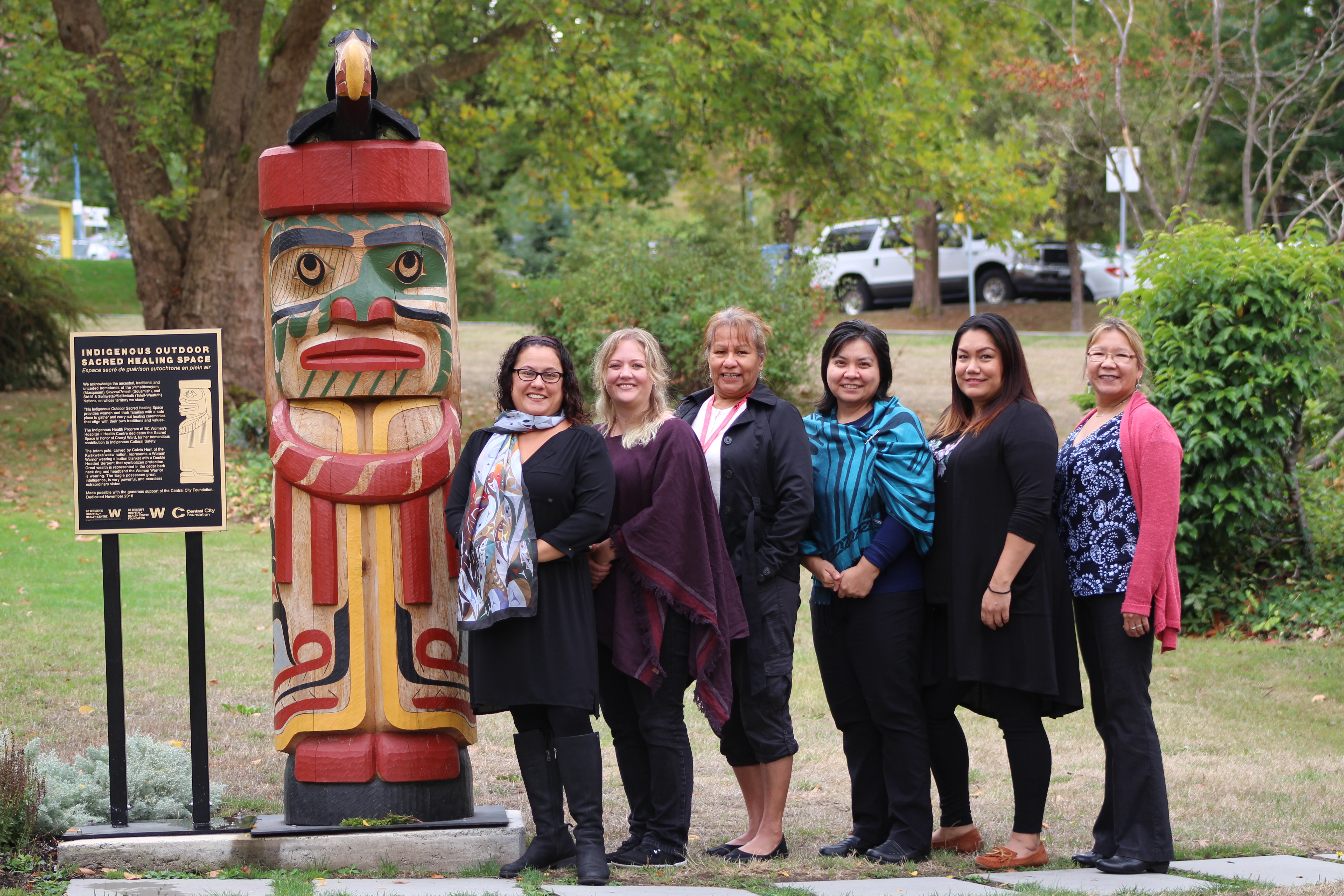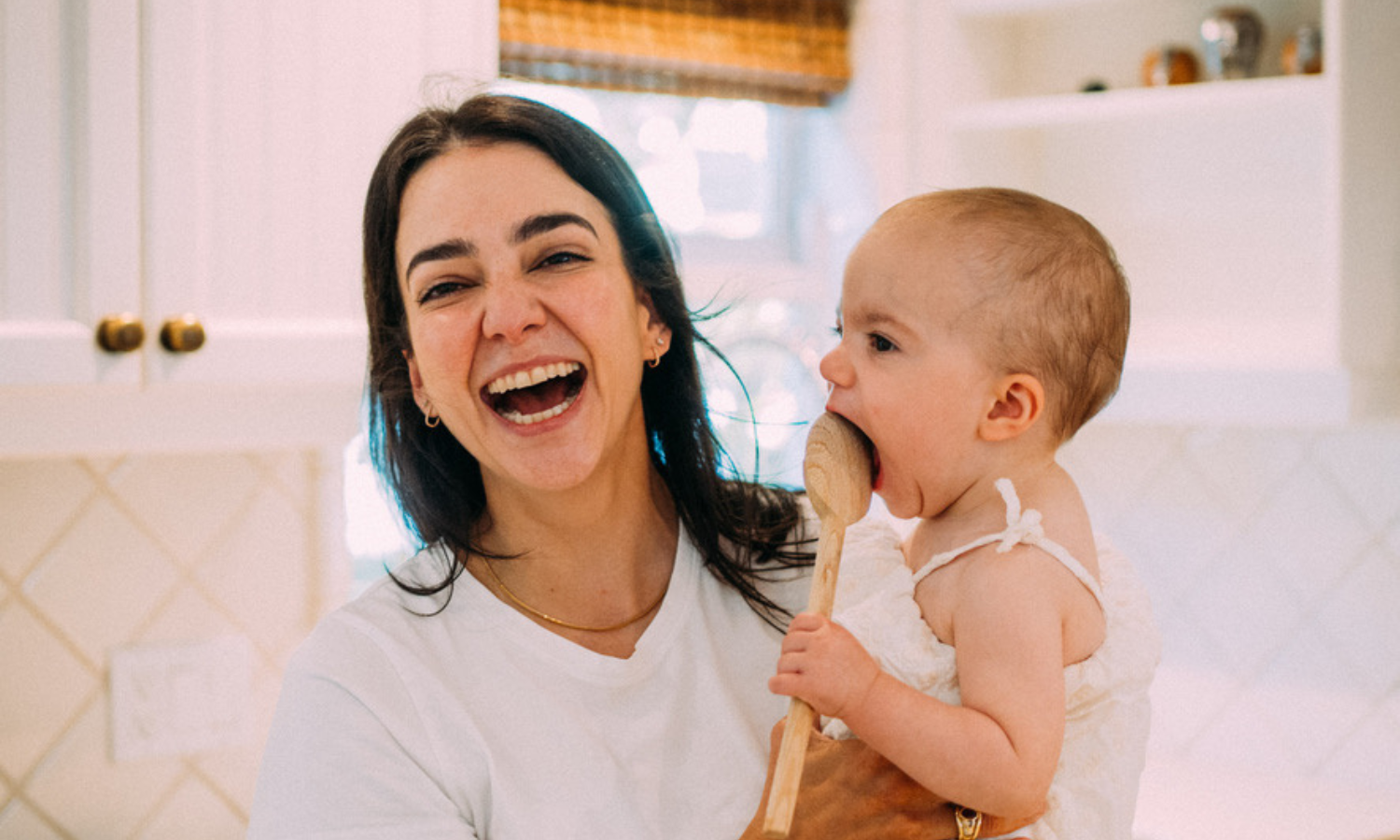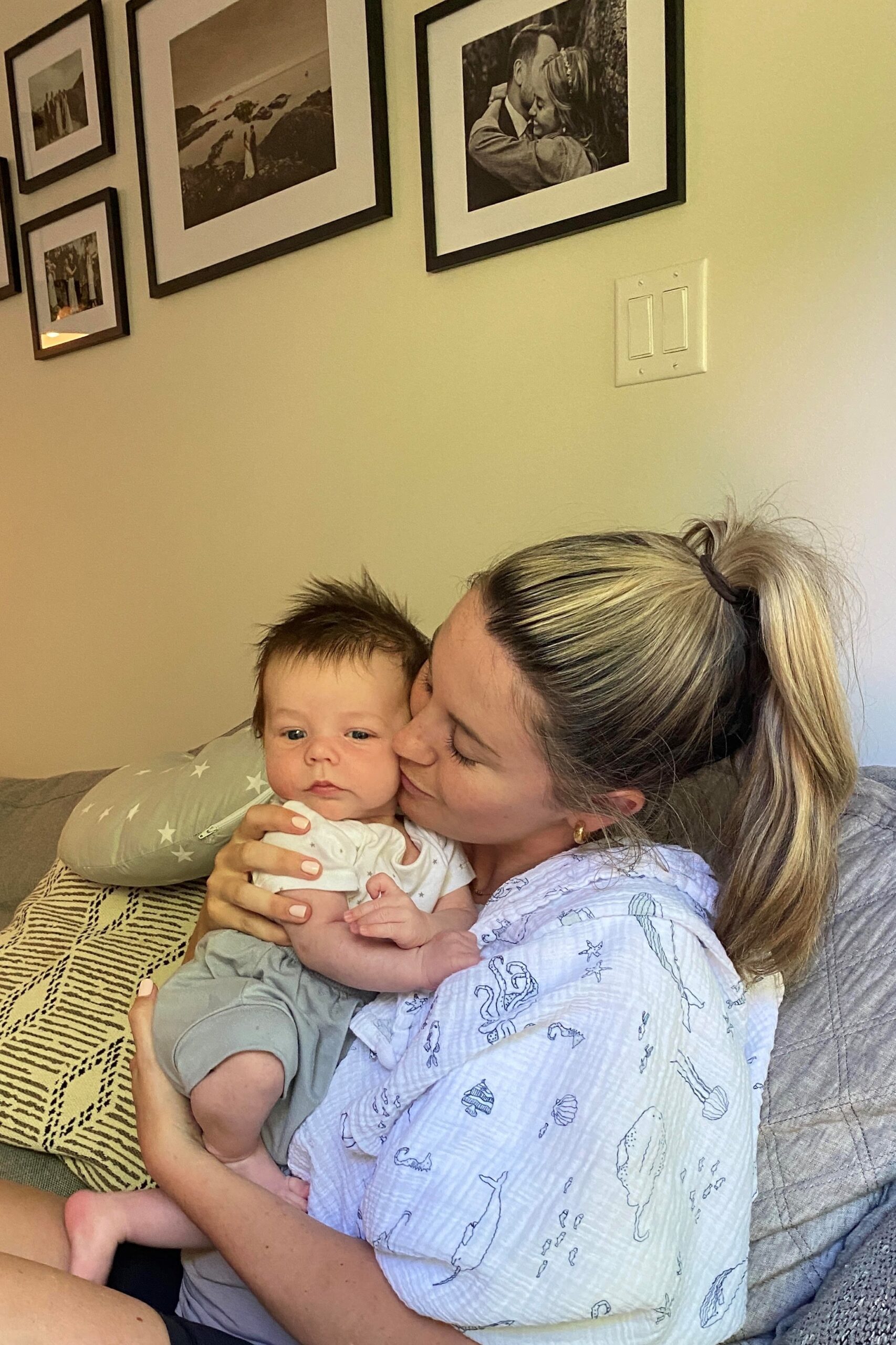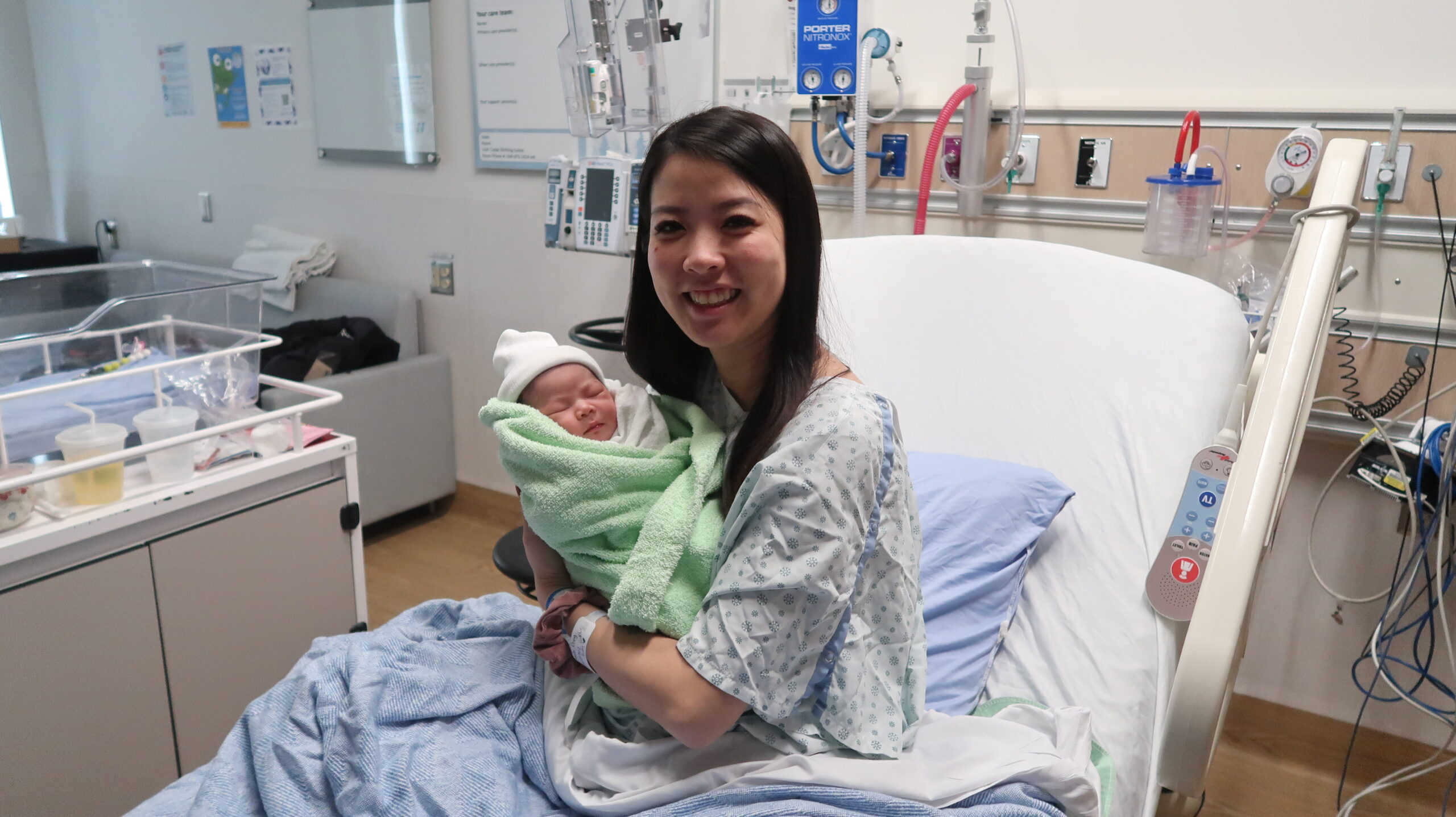
Catherine Hodgson, our Media + Communications Specialist, sat down with Jenny Morgan, Director of Indigenous Health at BC Women’s to ask a few questions about culturally-safe care.
CH: So I understand there are three main services provided by Indigenous Health. Can you tell us a bit about each?
JM: Our Indigenous Patient Liaisons assist and support Indigenous patients and families through their hospital stay. This is often in the form of visiting with patients, accompanying them to onsite appointments, providing advocacy when needed, and giving referrals to elder support. Roberta Price, our program elder, furthers this spiritual, emotional and cultural support for families. And our Complex Care Team consists of a social worker and nurse who work together with families experiencing socially complex challenges, or receiving highly complex medical care.

Roberta Price, program elder
CH: What does it look like, to you, when women are using these services to their full capacity?
JM: For each of these services, ensuring women are embedded with Indigenous cultural safety is our way to measure success. When families feel safe to share openly and honestly, when they feel trust, when they can connect with all healthcare providers and feel supported throughout the entire process.
CH: Where do you see the future of Indigenous Health at BC Women’s? Say, in 1 year, then 5 years?
My hope for the Indigenous Health Program is that it will continue to grow. In the past year, through fundraising efforts, we have nearly doubled our small team.
We have a new climate upon us to adequately serve Indigenous people, their needs, decolonize the health services, and improve health outcomes for our people. I’m very excited to be a leader in this program at this critical time of change.
CH: What, in your opinion, is the most important thing to consider when providing culturally-safe care to women in BC?
JM: That providing culturally-safe care is a life-long journey that we all need to begin. It’s embedding it into our professional development, holding systems accountable to their commitments, and seeing change and improvements through.
CH: Is there a story or experience that has stood out for you in your time as Director?
JM: Working together with the Hospital, Central City Foundation, and community partners, to have the expanded outdoor sacred space. The totem pole unveiling ceremony was a highlight of my time to date as the Director. This was a time of remembering our commitments to culturally safe care at BC Women’s Hospital.
CH: That day definitely stood out for me too. I’m lucky, I can actually see the totem pole from my office window. Okay next – can you tell us a bit about the launch of your new workshop guide and video on trauma informed care?
JM: We’ve worked together with community partners to provide a facilitator guide for a workshop that healthcare workers can offer in their communities. The focus is supporting Indigenous women who are survivors of sexual assault. The facilitator guide, accompanying video, and powerpoint presentation will be openly available on our website. We’re incredibly excited to launch it soon.
CH: What was something you didn’t expect when you started your role as Director?
JM: In the past, I have learned to navigate the challenges of working with people who have different world views and ideologies… but I really didn’t expect that by championing Indigenous cultural safety in health services, I was going to encounter such pockets of resistance. It’s not just here though, it’s across all health services. There’s a lot of literature… people can read to learn more about this… on systemic racism and structural violence that we must continue to work on dismantling at a system-level.
CH: What does gender equity mean to you, in your area of work?
JM: That Indigenous peoples will be a part of addressing the needs of our women, and be heard. One of the biggest crisis’ in our country and province is the missing and murdered Indigenous women and girls epidemic… with little to no system responses until recently with the national inquiry.
A hope I have for gender equity is: that the lives of Indigenous women and girls will be elevated as important for system-level responses to the many layers of issues that have led up to this.
CH: Lastly, what has been the most rewarding experience in your work?
JM: Finding ways to use my position to elevate the voices of Indigenous peoples and communities. Incorporating and promoting the mantra of “nothing about us, without us.” Finding ways to decolonize our work and design a system that will work for Indigenous peoples. Once that is accomplished, it will be a system that works for everyone.
Your contribution helps the Indigenous Women’s Health program support all women when engaging with the healthcare system.
- $50 can pay for one emergency gift card for a family in urgent need
- $100 can pay for medicine bundles for 40 families
- $150 can pay for a traditional healing ceremony
Read more about the Indigenous Health program at BC Women’s Hospital.



